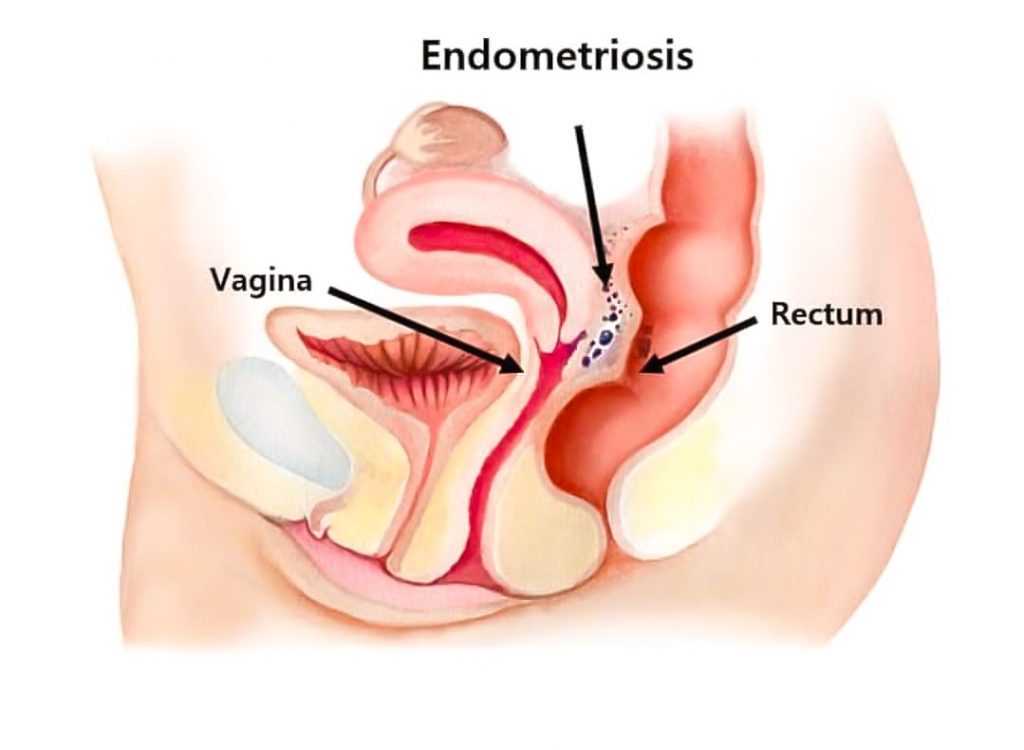
Endometriosis is the condition in which endometrial-like cells grow in areas outside of the uterus. One of these areas is the space behind the uterus and in front of the bowel (rectum/sigmoid).When the disease advances it can reach the bowel and sometimes infiltrate all its layers.
There are two types of endometriosis that grow on the bowel:
- Superficial endometriosis: it grows on the surface of the bowel
- Deep infiltrative: it perforates all the layers of the bowel reaching the lumen
How common is bowel endometriosis?
Published data shows that bowel is involved in approximately 20% of the total cases of endometriosis. When endometriosis affects the bowel, 90% of the cases will involve the recto-sigmoid part whereas 10% the rest of the bowel.
Is endometriosis a progressive disease in relation to the bowel?
In many occasions where endometriosis grows behind the uterus and in front of the bowel (in the so called “rectovaginal space”) ,it is possible that these lesions which are initially superficial, grow and finally invade the bowel and become infiltrative. The later form of endometriosis is an advanced one and needs consultation with a surgeon who is expert in endometriosis.
What are the symptoms of bowel endometriosis?
Most of the times patients complain of symptoms similar those of irritable bowel syndrome (IBS).In some cases ,symptoms caused by endometriosis worsen during menses and affect even more the already affected women’s quality of life.
The most common symptoms we encounter in cases of bowel endometriosis are the following:
- Deep pain
- pain during defecation
- pain during sex (dyspareunia)
- blood in the stools
what should I do if I suspect that I have bowel endometriosis?
The key in dealing with bowel endometriosis is definitely a consultation with a gynaecologist who specializes in endometriosis treatment. An endometriosis surgeon is the right choice in these cases as he/she will take the patient through all the necessary steps ranging from detailed diagnosis to successful treatment.
